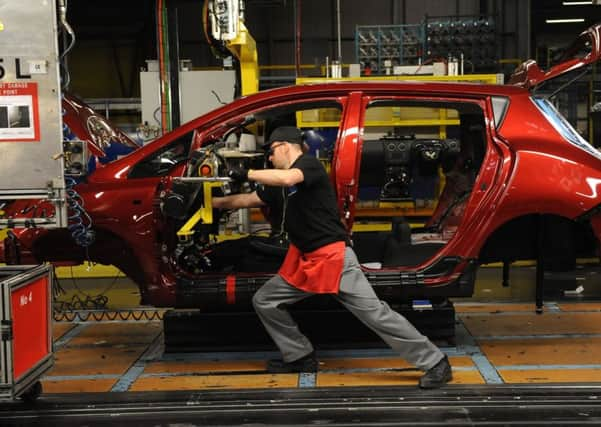Mark Casci: Is weak British productivity a price worth paying?


Whether it is rhetoric surrounding Brexit, transport or the manager’s office of whichever sporting team has recently fallen into poor form, the word is usually not far way.
In recent years crisis has increasingly been rolled out to refer to the state of the UK’s productivity.
Advertisement
Hide AdAdvertisement
Hide AdThe amount of work produced per employe per working hour is often used as a barometer of the success of an economy.
And, for more than a decade, it has been a source of concern.
In the post war era, Britain was Europe’s best performing nation in terms of productivity.
However, by the time the 1960s came around this status was falling away with France, West Germany et al overtaking the UK, prompting commentators to label us ‘the sick man of Europe’.
Advertisement
Hide AdAdvertisement
Hide AdA phrase that was first used to describe the Ottoman Empire, it increasingly was used in reference to Britain during its unstable economic period in the run-up to the 1980s.


With the election of Margaret Thatcher this decline was thrust into reverse and UK production generally rose with each passing year of the 1980s and remained stable until the financial crisis unfolded just over 10 years ago.
Since then we have witnessed the proverbial lost decade.
Productivity is still lagging behind the level achieved before the financial crisis in 2008 and is at such a weak level that cold snaps, such as that seen during the so-called Beast from the East, or warmer conditions as seen over the rest of the year, can make a seismic impact upon it.
Virtually all data shows our productivity here in the UK to be significantly poorer than many other leading economic nations. Germany, France, the USA, Italy etc all dwarf the UK.
Advertisement
Hide AdAdvertisement
Hide AdThe closer we get to home the grimmer the picture becomes. In Yorkshire, our productivity rate is third poorest in the nation, behind only Wales and Northern Ireland.
So, are we to conclude then that we are a nation, and region for that matter, of layabout shirkers? Are the workers in Yorkshire’s factories, offices and laboratories playing computer games at their desk or sleeping instead of putting in a hard day’s graft?
Of course not. There is every reason to take issue with the methodology used.
Since the increasing digitisation of our economy the old method of measuring productivity against the output per hour has increasingly come under question.
Advertisement
Hide AdAdvertisement
Hide AdBank of England officials concluded following research into the matter that there were too many variables to accurately explain away the productivity gap.
Another important area to consider is our employment rate. When one considers the impact of the financial crisis on worklessness in the UK, it is worth noting it played less of an impact in comparison to previous downturns.
The rise in production per hour seen during the 1980s under Thatcher I have already mentioned. However our employment rate during this period peaked at 13 per cent.
By comparison the worst it reached following the 2008 crash was 8.4 per cent.
Advertisement
Hide AdAdvertisement
Hide AdCompare this with other areas of the world, with much higher levels of productivity, and another difference becomes apparent.
Across the EU in general, the unemployment rate peaked at 11 per cent.
As you read this unemployment across Europe remains significantly higher than in the UK.
One must, when faced with such information, ask the moral question as to whether it is better to have a workforce, paying income tax and contributing to a business in a diminished capacity, or to have a nation of highly productive businesses yet millions of people claiming benefits from the state?
Advertisement
Hide AdAdvertisement
Hide AdLack of work is one of the worst things an individual can encounter in the modern world.
It leads to myriad physical and mental health issues, fractures families and communities and reduces the life chances of younger generations.
On some perverse level, weak productivity may well be a price worth paying in these most strange of times.